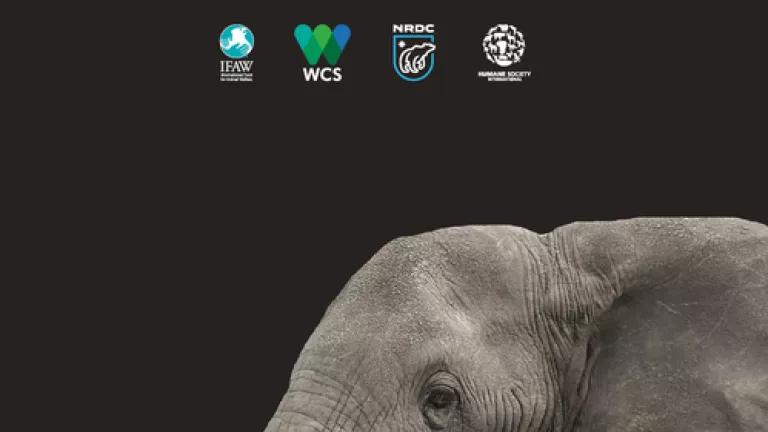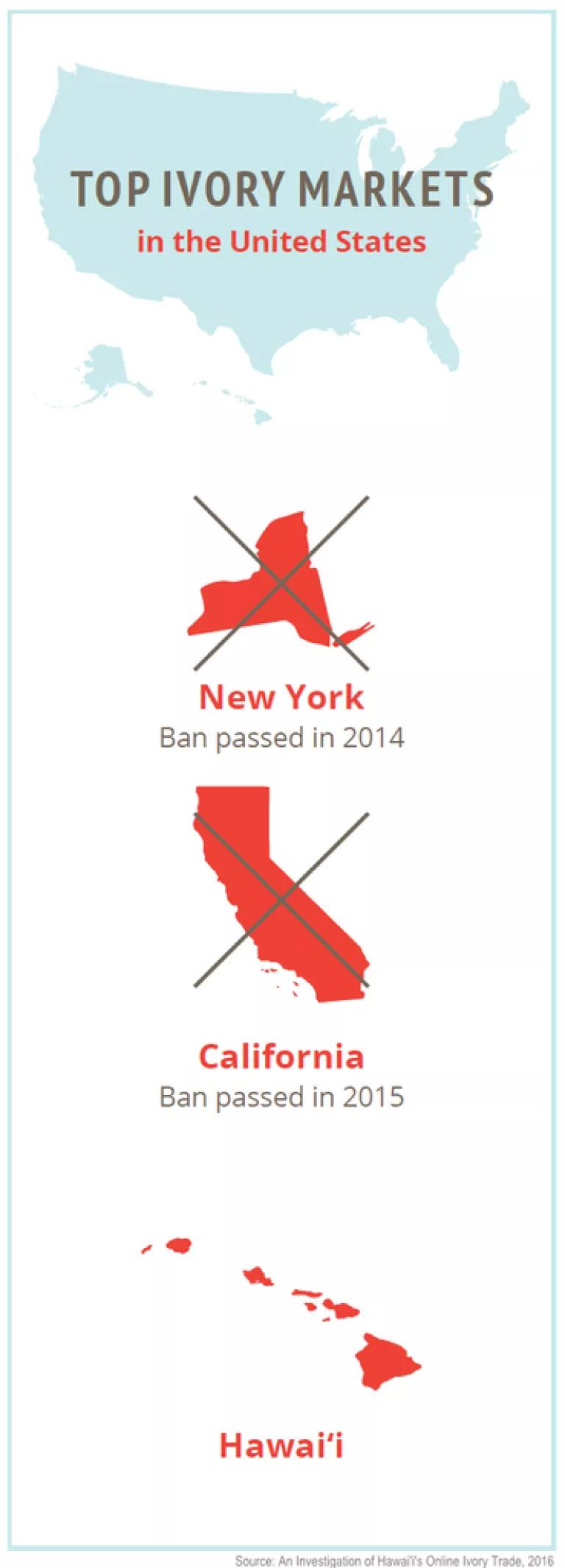
In honor of World Wildlife Day, NRDC, the International Fund for Animal Welfare, the Humane Society International, and the Wildlife Conservation Society released a new investigation showing that Hawaii is one of the United States' remaining major markets for ivory, making it all the more necessary to pass the wildlife trade ban bill currently working its way through the Hawaii Congress.
In just six days, investigators found more than 1,800 advertisements for ivory jewelry, carved walrus tusks, scrimshawed elephant toenails, and similar products. All told, more than 4,600 items - worth more than $1.2 million - were offered for sale. The overwhelming majority of the products were advertised as elephant ivory. Further, most of the items lacked the documentation necessary to prove that these tusks and carvings had been imported in accordance with federal law, meaning they could be illegal.
This study's findings are in line with those of a 2008 study, which found that Hawaii is the third largest ivory market in the country, following New York and California, due in part to the dozens of flights and ships entering its ports and airports daily from across Asia and the Pacific. The results also coincide with a 2013 study of Hawaii's ivory market, which found seven prominent online ivory websites offering more than 1,000 ivory objects for sale. Only one of these websites offered any documentation regarding the date and origin of its items, and even this documentation failed to correspond to any individual item.
And the studies aren't the only sources proving that Hawaii is a major market for wildlife products. Federal and state officials have expressed major concerns about the legality of Hawaii's ivory trade due to a 2015 bust in Honolulu in which federal agents seized more than 430 bone, coral, and ivory carvings suspected to have been smuggled from the Philippines - including 90 elephant ivory carvings - from a retail merchant called Hawaiian Accessories, Inc. Officials filed a 21-count indictment against the business and five individuals involved in the smuggling ring.
All this evidence makes clear: Hawaii is home to a significant market for wildlife products that is further threatening many of our world's most imperiled species.
With the upcoming International Union for the Conservation of Nature (IUCN) World Conservation Congress coming to Hawaii later this year - hosted for the first time by the United States - now is the perfect time for Hawaii to show world leaders its commitment to this issue ... especially since New York and California (the first and second largest U.S. ivory markets) have already passed laws ending their ivory markets. Let's pass Senate Bill 2647/House Bill 2502 and end Hawaii's role in this terrible trade.


